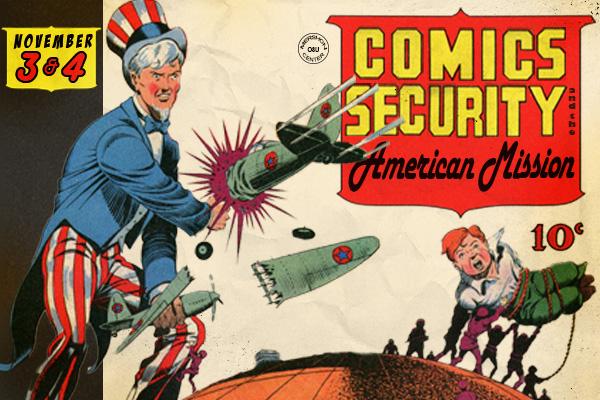
Support provided by the Mershon Center for National Security, the Billy Ireland Cartoon Library and Museum, the History Department, and the East Asian Studies Center.
Comic heroes were born amidst the tumult of World War II and became pillars of the American century. They reflected the muscular interventionism central to postwar nationalism even as soapy personal dramas internalized an ambiguity toward war, empire, and domestic society felt by writers and their often youthful readership. These seemingly contradictory impulses have defined the comics medium, even as the ubiquity of pulp adventurism in contemporary media drives a new era of US-led cultural globalization. The conference will explore this history by bringing together nationally renowned specialists on foreign affairs and political messaging. It will ask how government priorities shaped four-color responses to global conflicts, and to what extent disruptive events like the Vietnam War challenged their ability to stand for truth, justice, and the American way? Did the late Cold War and 9/11 revive patriotic narratives? And how have multimedia adaptations handled the long evolution of iconic characters while addressing contemporary matters ranging from the War on Terror to new political divisions? These discussions will consider how comics and pulp adventures inform popular narratives of conflict, insecurity, and heroism, and what their long history reveals about cultural attitudes toward U.S. power.
Keynote Speaker

Paul S. Hirsch is a visiting research affiliate at the Institute for Historical Studies in the Department of History at the University of Texas at Austin. He is the author of Pulp Empire: The Secret History of Comic Book Imperialism (Chicago, 2021), which won the Popular Culture Association’s Ray and Pat Browne Award for Contributions to the Popular Arts and was nominated for an Eisner Award. His work has received major support from organizations including the Robert B. Silvers Foundation, the National Science Foundation, and the Library of Congress.
